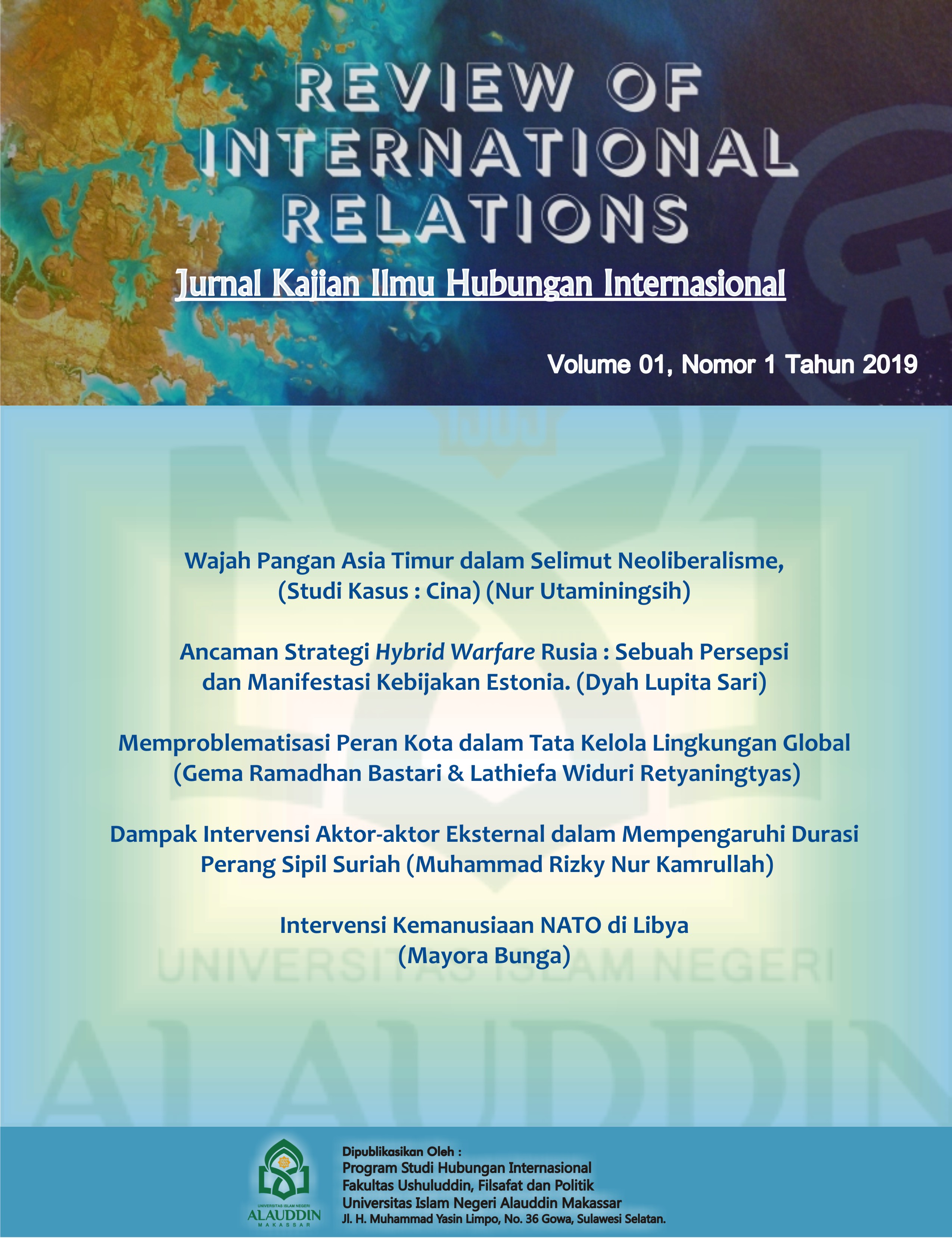INTERVENSI KEMANUSIAAN NATO DI LIBYA : ANALISIS JUS IN BELLO
Abstract
The Arab Spring is a term for the revolutions of countries in the Middle East. The Arab Spring has a purpose to overthrow a dictatorial government. The series of Arab Spring began with protest in Tunisia on December 18, 2010. This protest started with Mohamed Bouazizi, a Tunisian street vendor, who set himself on fire as a protest against corruption. The success of the protest in Tunisia gave a domino effect to the surrounding countries. The impact of the Arab Spring also occurred in Libya in 2011. Libyan leader, Muhammar al-Gaddafi who has been in power for 42 years, refused to resign. This triggered protest from the Libyan people. Civil war happened in Libya between the pro-Gaddafi group and the opposition. NATO conducted humanitarian intervention in Libya under the official UN mandate. This article provides a humanitarian intervention analysis conducted by NATO using just war theory, especially the principle of jus in bello. The purpose of this article is to find out whether the intervention was in accordance with the jus in bello principle or not. This article used the literature study method by collecting data related to NATO intervention in Libya. This article shows that there are crimes against humanity committed by NATO in Libya. But, NATO intervention in Libya can reach the goal if viewed with proportionality principle in jus in bello.
Keywords: Libyan conflict, humanitarian intervention, jus in bello.










